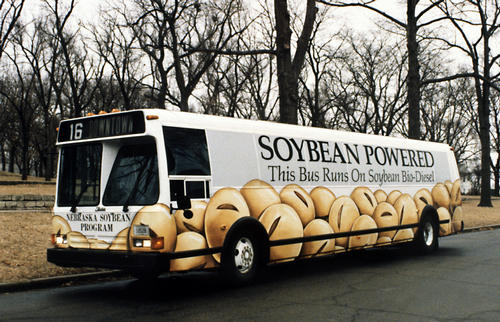Pacific Biodiesel in Kea‘au has just been certified sustainable – the first biodiesel plant in the U.S. to be granted such a certificate – and that’s significant.
The plant opened using primarily waste cooking oil, and that cooking oil has been financing the plant. Now, it’s built. We don’t have to grow, say, palm trees and try to utilize the palm oil to build a plant and make that work out. The plant is already up and running.
All we need to do now is supply a product, whatever it may be. This gives us the opportunity to bring in other products and try them out as biofuels.
This is great news.
From the New York Times:
Biofuels Plant in Hawaii Is First to Be Certified as Sustainable
KEAAU, Hawaii — The trucks roll in and out of the plant at a business park nestled near papaya farms and a forest preserve on the Big Island here, an operation that transforms waste cooking oils, animal fats, fruit and seeds into biodiesel fuel, nearly 13,000 gallons a day.
Owned by Pacific Biodiesel, an industry pioneer, the plant was designed with an eye toward conserving water and energy and avoiding environmental harm.
But after about $20 million and four years of operation, a central question about the plant, and the industry as a whole, has persisted: Do biofuels ultimately reduce carbon emissions?
“We’re worried that the efforts to ramp up our use of biofuels are actually doing a lot of damage and digging the climate hole deeper,” said Jonathan Lewis, a lawyer focused on climate change at the Clean Air Task Force.
Now, the biodiesel industry’s backers say they have an answer, at least for this modest plant….

